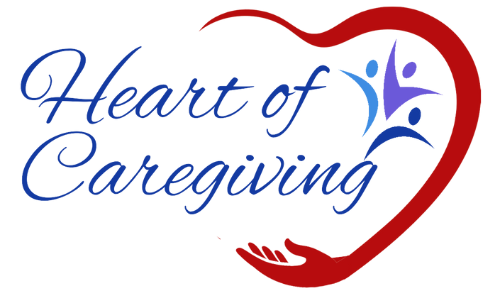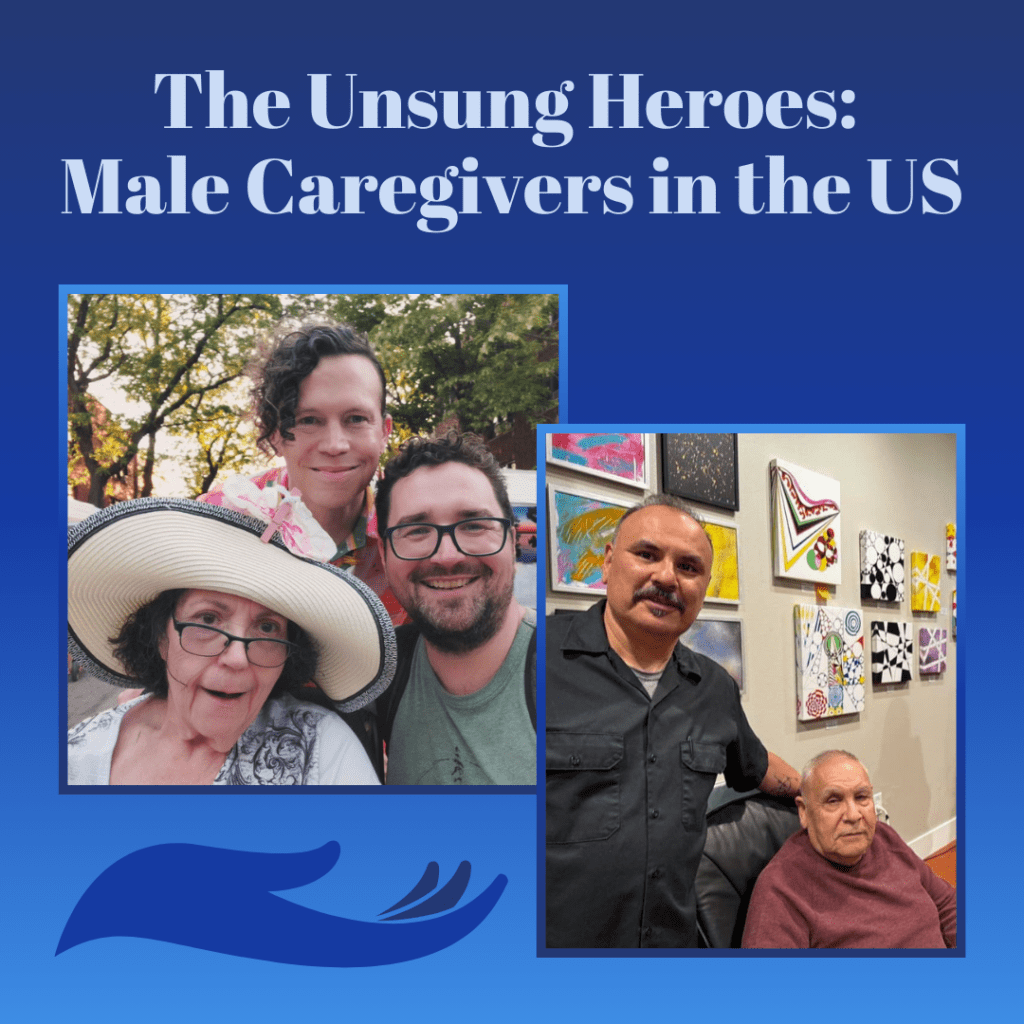The Unsung Heroes: Male Caregivers in the US
Caregiving is often perceived as a role traditionally filled by women, but in the United States, millions of men are stepping into this demanding and emotionally challenging position. Male caregivers, whether they are husbands, sons, brothers, or friends, provide crucial support to their loved ones, often without the recognition or resources they need. I want to shed light on the unique struggles male caregivers face and the support they require to navigate their caregiving journey effectively.
The Rise of Male Caregivers
According to a report by the AARP, approximately 40% of the 53 million caregivers in the United States are men. This statistic is a testament to the growing number of men who are taking on caregiving roles, whether due to the aging population, the rise in chronic illnesses, or other factors. Male caregivers often provide care for their spouses, parents, or even friends, managing tasks that range from assisting with daily activities to handling complex medical care.
Unique Struggles Faced by Male Caregivers
1. Societal Expectations and Stigma: Traditional gender roles often dictate that men should be the primary breadwinners and providers, not the caregivers. This societal expectation can lead to feelings of inadequacy or shame among male caregivers. They may hesitate to seek support or share their experiences for fear of being judged or perceived as less capable.
2. Emotional Suppression: Men are often socialized to suppress their emotions and “tough it out.” This can be particularly challenging for male caregivers, who may struggle with the emotional toll of caregiving. The lack of emotional outlets can lead to increased stress, anxiety, and even depression.
3. Balancing Work and Caregiving: Many male caregivers juggle full-time jobs with their caregiving responsibilities. This dual burden can lead to physical exhaustion and burnout. Employers may not always understand or accommodate the needs of male caregivers, further complicating their ability to balance work and caregiving.
4. Limited Support Networks: Men may have smaller support networks compared to women, making it harder for them to find the help they need. They might not have close friends or family members to lean on, and they might be less likely to join support groups or seek out resources designed for caregivers.
5. Healthcare Navigation: Navigating the healthcare system can be overwhelming, especially for those who are not familiar with it. Male caregivers may find it challenging to coordinate medical appointments, manage medications, and communicate effectively with healthcare providers.
Love is … Endless and Eternal
Dennis Dulniak shares his story: In 1969, Nancy and I met at SUNY Fredonia’s Freshman Orientation. Our first date was at Niagara Falls, during the year when the water was diverted away from the American Falls. We were married for 47 years and raised two wonderful sons, Mark and Craig. We moved around the country in various positions, enjoyed traveling, went to countless college football and basketball games where Nancy was often one of the loudest fans, enjoyed numerous theatrical performances on Broadway and off, especially supporting our sons for their Roxy shows in Clarksville. During her quiet time, Nancy loved to read. We certainly treasured our lives together with a strong supported love connection. The photo captures a precious memory of us at her Memory Care facility during a Valentine’s dinner.
Following Nancy’s diagnosis of Mild Cognitive Impairment and then Early Onset Alzheimer’s in 2014, my caregiver responsibilities increased and developed, while our love bond grew stronger as we faced challenges together. We continued to embark on new avenues where my efforts for caregiving grew through planning for extensive travels, participating in drug trials, engaging in activities that kept Nancy’s mind active, making new friends, advocating for Alzheimer’s research, and preparing legal documents for an eventual decline. As Alzheimer’s robbed Nancy of her ability to recognize me or communicate effectively, my love for her only grew stronger. The memories we made together continue to resonate with me through our “Good Days and Bad Moments” philosophy and the love we shared.

Throughout her caregiving, I learned the importance of support groups where my role within the Men’s Support Group has grown into the lead facilitator. Men need other men to talk to, share their unique gender-based issues, and obtain sincere feedback, suggestions with opportunities to develop relationships among other males that is so lacking among men, especially caregivers whose role creates greater isolation
Nana’s Books Foundation
Dennis founded Nana’s Books Foundation as another way for all that love to live on. The mission is to share Nancy’s love of books and reading with thousands of students in Title I schools and public libraries each year. In the first three years, the Foundation distributed 12,762 books to 6,323 students in 16 Title I schools in eight states. Please join as Donors and Volunteers to enhance literacy, education, kindness, and compassion among students and communities, https://www.facebook.com/nanasbooksfoundation
Nana’s Books Foundation has created a loving legacy that is helping thousands of children, caregivers, and communities. Let us all cherish the time we have together and create ways for love to endure long after we are gone. Share the Love! Read more: https://www.nanasbooks.org/blogs/love-is-endless-and-eternal-by-dennis-dulniak
Support Needed for Male Caregivers
1. Encouraging Open Dialogue: It’s crucial to create an environment where male caregivers feel comfortable discussing their challenges and emotions. Encouraging open dialogue within families, communities, and workplaces can help break down the stigma associated with male caregiving.
2. Providing Education and Resources: Male caregivers need access to education and resources tailored to their unique needs. Workshops, online courses, and informational materials can help them learn caregiving skills, understand medical terminology, and navigate the healthcare system more effectively.
3. Workplace Flexibility: Employers should recognize the dual roles of male caregivers and offer flexible work arrangements, such as remote work options, flexible hours, and caregiver leave policies. This support can help male caregivers balance their work and caregiving responsibilities without compromising their job performance.
4. Building Support Networks: Creating and promoting support groups specifically for male caregivers can provide them with a safe space to share their experiences and seek advice. These groups can be in-person or online, offering various formats to accommodate different preferences.
5. Employee Assistance Program (EAP): Employees may have access to a benefit through Human Resources for Employee Assistance Programs. EAP provides voluntary, confidential services at no cost, to employees who need help managing persona difficulties or life challenges at no cost – a true benefit for counseling and support in dealing with caregiving activities.
6. Mental Health Support: Access to mental health services is essential for male caregivers to manage stress and emotional challenges. Counseling, therapy, and support groups can provide much-needed outlets for emotional expression and coping strategies.
7. Financial Assistance: Caregiving can be financially draining, especially for those who need to cut back on work hours or quit their jobs. Providing financial assistance, whether through government programs, grants, or employer support, can alleviate some of the financial burdens male caregivers face.
Connect
Meet two millennial male caregivers who are committed to caring for their parent.
Carlos Olivas cares for his dad, who is living with Alzheimer’s disease. Carlos also hosts support groups for men and you can learn more about Carlos, his dad and their caregiving journey here:
A son’s love story spotlights his dad | Courageously Artistically Flourishing with Alzheimer’s | A positive approach towards person centric dementia care – https://www.instagram.com/charlierobot/
https://www.facebook.com/carlitoseveryday247
https://www.instagram.com/carloseveryday/
https://www.linkedin.com/in/carloseveryday/
Brandon Will cares for his mom Janice who lives with Parkinson’s disease. Brandon and his mom write together and share their journey on social media. Their story can be found here:
https://www.facebook.com/BrandonGWill
https://www.instagram.com/ourwillpower/
https://www.tiktok.com/@ourwillpower
Conclusion
Male caregivers play a vital role in the lives of their loved ones, offering unwavering support and care. However, they often face unique challenges that can impact their well-being and effectiveness as caregivers. By acknowledging these struggles and providing the necessary support, we can ensure that male caregivers receive the recognition, resources, and respect they deserve. It’s time to redefine caregiving roles and support all caregivers, regardless of gender, in their journey to provide compassionate care.
For more on caregiver self-care and other solutions for caregivers’ common mistakes, check out 21 Mistakes Caregivers Make & How to Avoid Them: Solutions and Strategies to Reduce Stress and Increase Happiness, available on Amazon! Are you looking for a dynamic speaker on caregiver empowerment? Go to my speaking page, and let’s connect!
The advice offered is for general information only; please consult your healthcare team, legal, or financial advisors for guidance.


